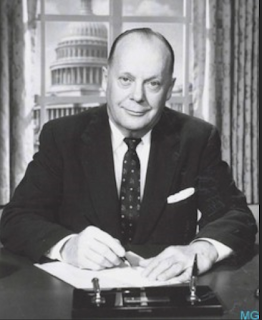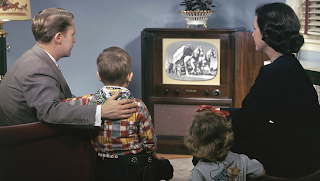I have tried to limit my use of technology this year, but have really not been successful. Everyone needs the internet for work or school, so you can't limit yourself too much from technology. But in the spare time that I have, I still use most of it browsing the internet, playing video games or watching television. I put off activities like exercise or reading books because I feel like I don't have time for those, but with the time I'm using technology, I certainly can do those things. It might be a problem with me, or with the internet making me think I don't have enough time for other activities.
Watching the World's Fair Futurama video, I found it interesting how well technology has advanced since then. We have explored the moon and ocean, but at the same time, there are no highways connecting entire continents. The world has still been connected, just through the internet. But the last line of "man must charge his own course into tomorrow, a course that frees the mind and the spirit as it improves the well-being of mankind" has stuck with me. With the expansion of technology, our mind and spirit has not necessarily been freed, but reconditioned into a dependence on what humanity has created. And while technology has brought many great things to humanity, it has faced unintended consequences that have made society worse.
The Brexit vote and U.S. Presidential Election, both in 2016, laid bare the problems with misinformation being spread across the internet, which likely had a direct impact on the result of both elections. In addition to misinformation and lies being easily spread on the internet, social media is designed in a way for users to only see information that aligns with their views. The spread of fake news has been regulated since then, but people can still access the same information that can be intentionally misleading. It is almost impossible now to debate or argue in an honest manner, as the anger on the internet can largely be attributed to consuming sources that aren't trustworthy.
As for the music video, I honestly had a hard time taking it seriously. There has been a lot of media criticizing people, especially millennials, for their use of technology, to the point where the criticism has become a joke in of itself. However, this could very well play in to the desensitization of people to criticism and empathy, among other things. Similar to how the frequency of mass shootings has been desensitized to become a terrible norm, the ability to think and feel rational thoughts and emotions are not commonplace anymore. While the "boomer vs. millennial" memes might be funny, it represents a society that doesn't take itself seriously anymore. With this becoming mainstream humor, I'm concerned that this generation and future generations may not feel as sympathetic to societal issues down the road. However, this stems from a lack of progress being made in our nation's political landscape, which is a much bigger issue than some jokes online. If our political leaders can do more work for a just society, then perhaps the generational rivalry wouldn't be as big of an issue.
As stated in a prior blog on TED Talks and security, technology is slowly leading us down a dark road that can be rectified with even simple solutions. For all the criticism that the tech industry receives, they have done a good job at listening to complaints and working to resolve them, which does not make me too worried about the future. I often look on the internet for bad news, but if our political leaders did their job better, then I, along with millions of Americans, may not be as concerned about the country. As I am now graduating in an election year, hopefully America can right technology's ship and leave a better future for myself and future generations.
While a fairly simple joke, it conveys a message on how humanity is dependent on technology and how we rely on it for answers, no matter how complex or insignificant.
A meme on the boomer and millennial divide. It may not make a lot of sense, but that's kind of the point, as people on the internet seemingly now argue for the sake of argument.
https://www.pewresearch.org/internet/2017/10/19/the-future-of-truth-and-misinformation-online/
https://www.nbcnews.com/better/lifestyle/ok-boomer-diving-generation-what-does-it-mean-ncna1077261











